Imagine owning a slice of paradise; a private island where you can escape the hustle and bustle of everyday life. But here's the kicker—you might be closer to living that dream than you think!
Private island ownership is no longer reserved for the ultra-wealthy. Thanks to new platforms and trends, buying a piece of secluded paradise has become more accessible now than ever before.
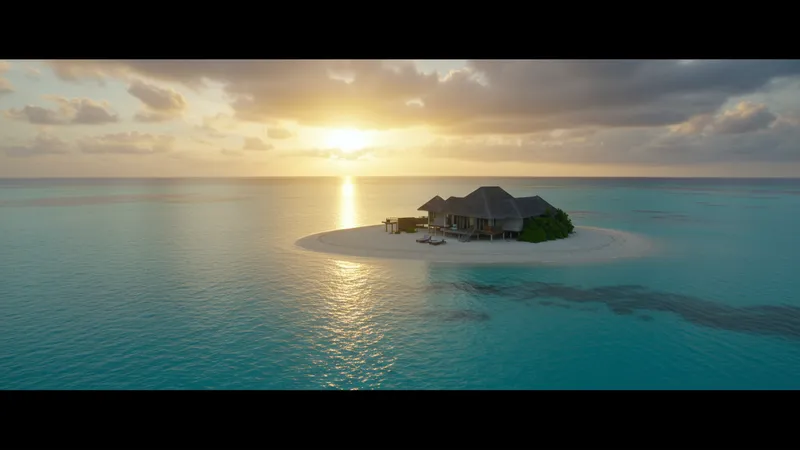
Did you know there are entire communities of island enthusiasts trading secrets online? Forget crowded beaches; real island owners are talking about exclusive parties, self-sustainability hacks, and the best ways to conserve natural beauty—all things you won’t learn from a casual glance at a real estate listing. But that’s not even the wildest part…
Some islands come with more than just sand and sea; unique land formations, hidden ecosystems teeming with rare wildlife, and untold stories lie beneath their surfaces. Imagine stumbling upon an island that housed pirates centuries ago or one with rare flora that could hold the secret to the next big scientific breakthrough! What happens next shocked even the experts…
The pandemic has shifted real estate market dynamics globally, and the island market is not immune. With remote working becoming the norm, more people are looking for serene, picturesque locations to call their offices. Surprisingly, this surge in interest has had the opposite effect on prices due to mass listings springing up worldwide. But there’s one more twist: the increase in supply!
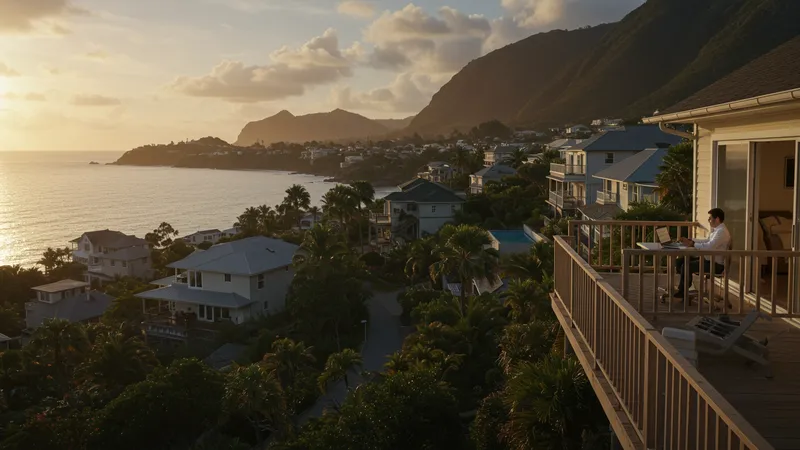
Developers, eager to capitalize on this sudden trend, are converting previously untouchable lands into dream destinations. These projects, while exciting, ensure there is more inventory available—forcing prices down despite increased demand. This paradox is yielding unexpected opportunities for buyers, making now the time to act.
In a fascinating turn of events, financing options are becoming more flexible too. Financial institutions, recognizing the allure of island living, are offering specialized loans and incentives for such unique purchases. Some lenders even provide custom insurance packages that streamline the buying process. But what you read next might change how you see this forever.
What's genuinely surprising is how technology is simplifying the transaction process. Virtual tours and real-time bidding have revolutionized the way these islands are marketed, shortening the historically slow island acquisition timeline. Just imagine sealing the deal on your dream retreat without stepping out of your current home!
Beyond mere travel destinations, islands are now being recognized for their sustainability potential. Cutting-edge architects and ecologists are joining forces to create eco-friendly habitats that harmonize with nature. Some islands even harness renewable energies to become self-sufficient, challenging conventional notions of off-grid living.
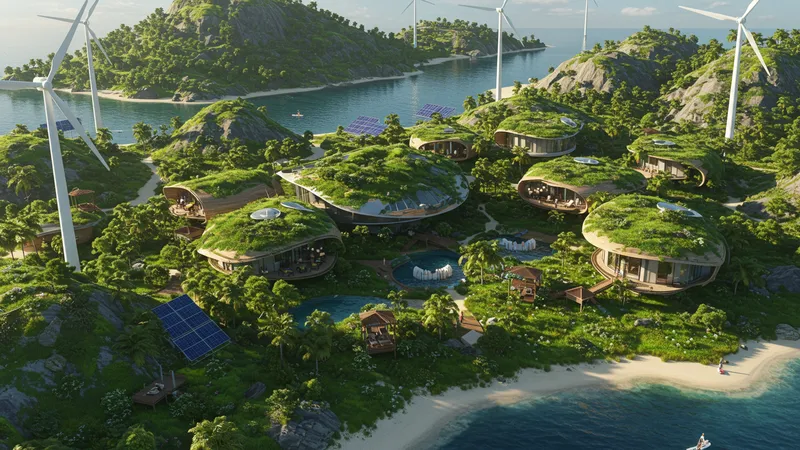
For instance, solar and wind projects are sprouting up, enabling islands to generate their own power and reduce carbon footprints. It’s not just about owning a piece of land; it’s about embracing a lifestyle that respects the planet. These developments inspire a new kind of luxury: one that combines comfort with conscious living.
In these settings, innovative water management solutions are implemented to mitigate scarcity. Rainwater harvesting and desalination technologies are increasingly used to ensure fresh water supply. Such pioneering applications make island living not only viable but forward-thinking and sustainable. But there's still more to uncover…
Additionally, these islands offer unique biodiversity prospects. Conservation groups see them as havens for endangered species, and sometimes, owning an island means playing guardian to the rare flora and fauna it hosts. The possibilities of blending conservation with ownership can be both professionally rewarding and personally fulfilling.
While the idyllic prospect of owning an island is appealing, navigating the legal intricacies can be daunting. Every island lies within a country's jurisdiction, and understanding property rights, taxes, and local laws is pivotal. Legal hurdles can vary widely depending on location, some posing unexpected challenges.
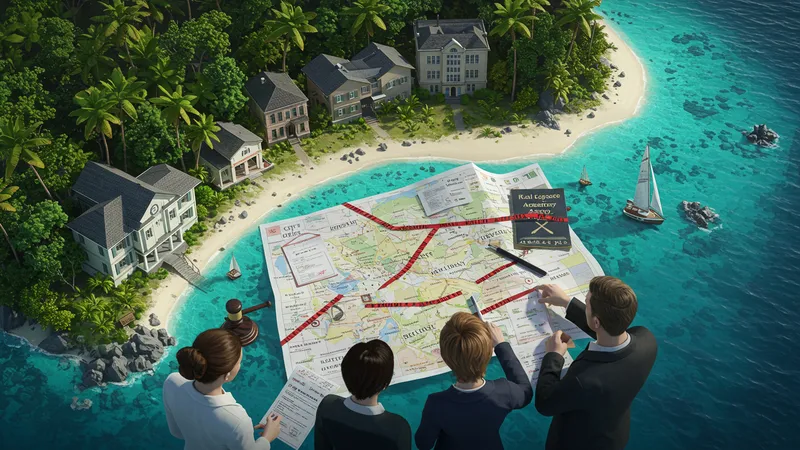
Shockingly, some islands have dual ownership structures—surface rights and subsoil rights. If you’re not careful, you might end up purchasing rights that limit development or, worse, sharing ownership with the local government or businesses. The devil truly is in the details with island real estate.
Also, international buyers often face additional restrictions compared to locals, especially in regions seeking to protect native land rights. Knowledgeable legal counsel specializing in maritime and island laws is indispensable in these transactions. But the complexities don’t end there.
Moreover, the dream of building a cozy beachside villa could be thwarted by stringent environmental regulations. Certain islands may impose restrictions to safeguard ecosystems, meaning obtaining building permits could become an arduous process fraught with red tape.
Beyond the obvious allure of solitude, island ownership offers unexpected perks and benefits. Picture yourself enjoying tax incentives, as some jurisdictions encourage development through favorable real estate tax policies. These financial advantages can often offset the upfront costs of purchase.
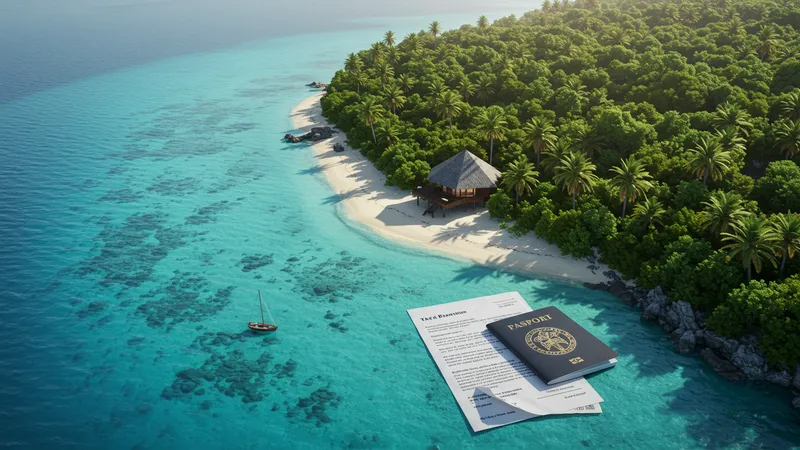
In certain regions, owning an island could also secure residency rights, paving the way for dual citizenship or even tax residency status. This opportunity for a change in tax liability is one aspect potential buyers find most compelling when considering an island purchase.
Unexpectedly, many island owners engage in creative endeavors, from art retreats to exclusive film locations. The secluded nature and natural beauty provide a perfect canvas for inspiration and creativity, turning the island into a hub for artistic expression.
Uniquely, some islands offer lucrative revenue streams through tourism. From eco-adventures to luxury getaways, marketing a private island can bring in sustainable income, turning your secluded paradise into a sought-after holiday destination.
When most people think of island owners, they imagine reclusive millionaires, but the reality is strikingly different. Communities of island owners have formed, communicating through social media and private forums, exchanging advice and support.
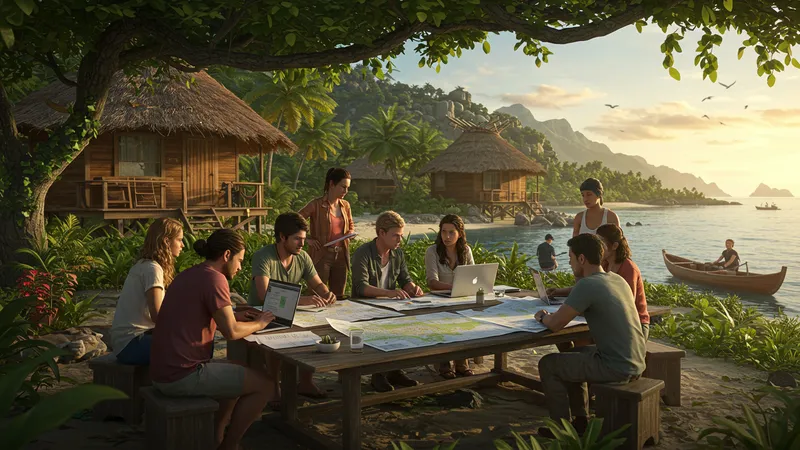
Remarkably, this network has been pivotal for newcomers. Shared experiences, from construction challenges to environmental preservation tips, create a camaraderie among a diverse group of individuals who all share a common goal: living the island life.
Regular meet-ups and conferences further cement these relationships, where owners swap stories over drinks, learning from each other’s successes and mishaps. The sense of community is as strong as any traditional neighborhood.
Additionally, some organizations offer mentorship programs for prospective buyers. These programs can provide one-on-one guidance, helping demystify the buying process and laying the groundwork for successful ownership—a huge boon for beginners.
Think island ownership equates to complete isolation? Think again. Modern technology is bridging the gap between seclusion and society. High-speed internet installations, once deemed impossible in remote locations, are transforming the operational reality of living on an island.
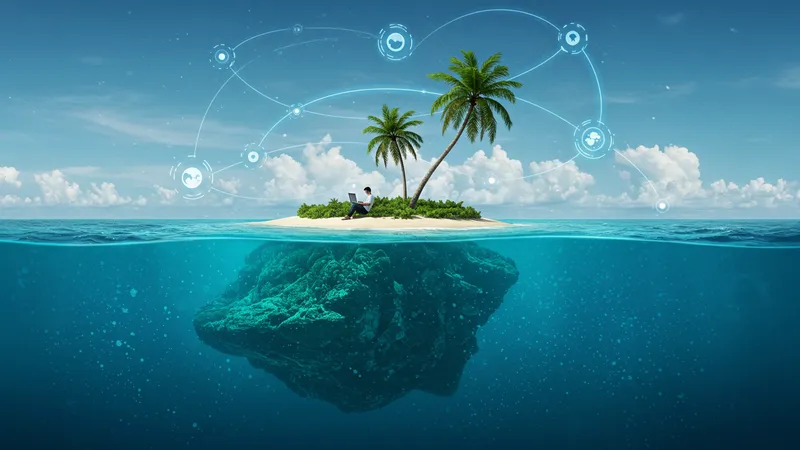
Satellites and underwater cables now provide reliable internet connections, enabling remote work from your island haven. This technological leap is changing the narrative of island isolation, inviting more to consider a digital nomadic existence.
Drone deliveries are further revolutionizing logistic constraints. Necessities, from groceries to medical supplies, can now be transported with ease, overcoming one of the significant barriers to island life. But the tech advancements don’t stop there.
With security systems and surveillance technology, keeping your island safe is more manageable than ever before. Smart technology allows for remote monitoring, ensuring peace of mind no matter where you are in the world.
However appealing island ownership sounds, it comes with its set of challenges. Powerful storms pose significant risks, and preparing your island property for extreme weather is crucial. Robust infrastructure plans and storm-resistant designs are more than just nice-to-haves—they’re essential.
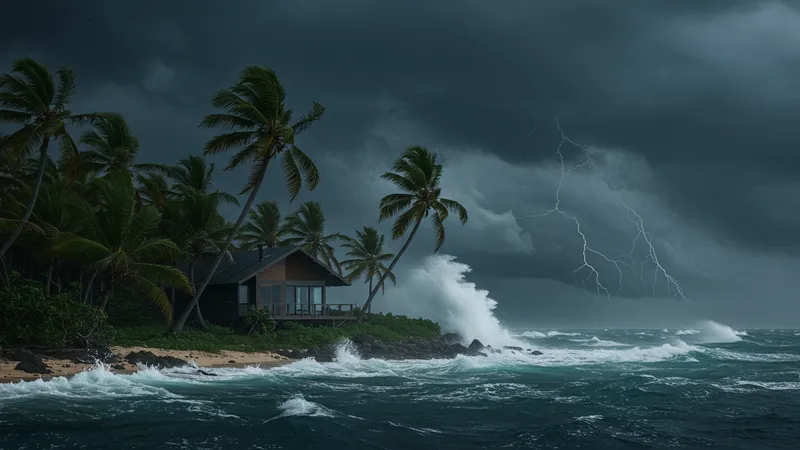
Even with preparedness, unpredictable weather patterns can impact access, particularly during monsoon seasons when transport routes become unreliable. It's a reality that prospective owners must be ready to accept and manage.
Furthermore, isolation brings logistical complications, including access to healthcare. Island owners often address these by investing in first aid training or private healthcare facilities, underscoring a commitment to safety.
Ultimately, these challenges require a balanced view, weighing them against the unparalleled privacy and natural beauty islands offer. For many, the obstacles are worth overcoming for the promise of paradise.
Owning an island also means engaging with local cultures and traditions, often rich and diverse. Islands are often home to vibrant communities with unique heritages, offering an immersive cultural experience for owners willing to embrace it.

In places where natives coexist with island owners, participating in local festivals and traditions strengthens relationships. It's an unexpected benefit that enriches your life while promoting cultural preservation.
The history of these communities can offer profound insights, informing how owners interact with the land and even influencing stewardship choices. Respect and understanding of local customs can lead to rewarding exchanges and cooperative living.
Philanthropic opportunities also abound, with island owners investing in community development initiatives, helping improve educational or healthcare infrastructure. Such contributions positively affect relations, gaining goodwill and friendships that transcend transactional ownership.
For many, investing in an island is an investment in the future. Islands often become legacy properties, treasures passed down through generations, enabling families to foster traditions and create memories.
This sense of belonging and continuity offers far more than just financial returns. Envision your children growing up with their special slice of heaven, exploring nature and understanding the importance of conservation.
More than a vacation spot, an island can become a legacy of environmental stewardship, teaching future generations about the earth’s ecosystems and the importance of sustainability.
Establishing eco-friendly practices and infrastructure ensures that your investment not only appreciates but also contributes positively to the world's ecological balance, a noble mission with deep personal resonance.
An emerging trend among island enthusiasts is fractional ownership, allowing parties to share an island, reducing costs while still offering the luxury of private getaways. This democratization has opened doors for those who thought ownership was beyond reach.
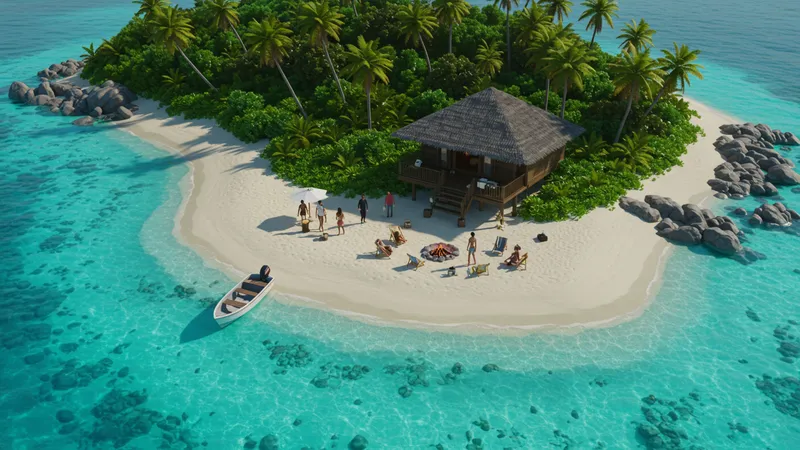
Shared ownership plans divide the responsibilities of maintenance and management. It's a strategic way to enjoy all the benefits of island life without the sole burden of upkeep costs.
Fractional ownership is also an excellent way to dip your toes before deciding on a full purchase. For those cautious about complete ownership, this presents a more flexible, lower-risk entry into the captivating world of island living.
What’s more, several companies are beginning to offer fractional ownership as a formal service, ushering a new wave of enthusiasts into the private island market, expanding what’s possible in this exclusive domain.
As with any real estate investment, owning an island can bring long-term financial rewards. Historically, islands have appreciated in value, their limited nature contributing to scarcity and demand—an ideal investment scenario.
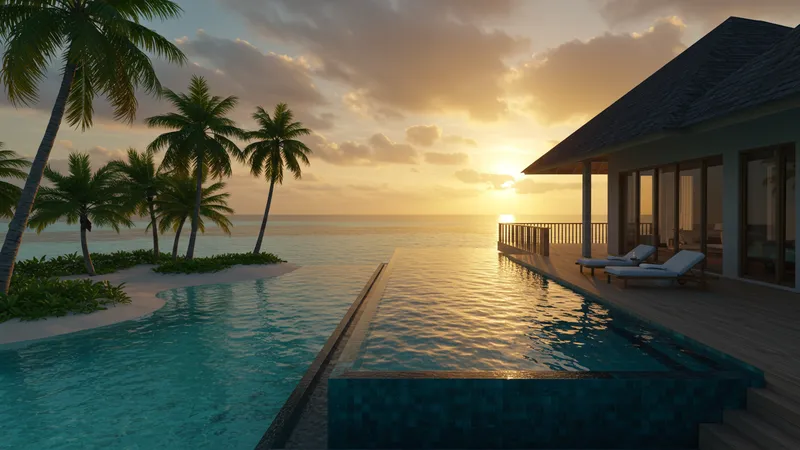
Additionally, islands offer unique rental opportunities. With increasing interest in exotic, secluded getaways, owning an island can turn into a profitable venture as a high-end vacation rental.
The combination of personal use and rental return potential makes islands a dual-purpose investment, maximizing both financial and lifestyle returns. An island isn’t just a property—it’s a dynamic asset that serves multiple interests.
Astute investors recognize this potential, investing strategically in regions with growth prospects, capitalizing on tourism trends and infrastructural developments to enhance their investments’ viability and profitability.
Beyond financial and lifestyle benefits, owning an island offers something priceless: emotional fulfillment. The calm and peace that accompany life surrounded by the sea are hard to find elsewhere.
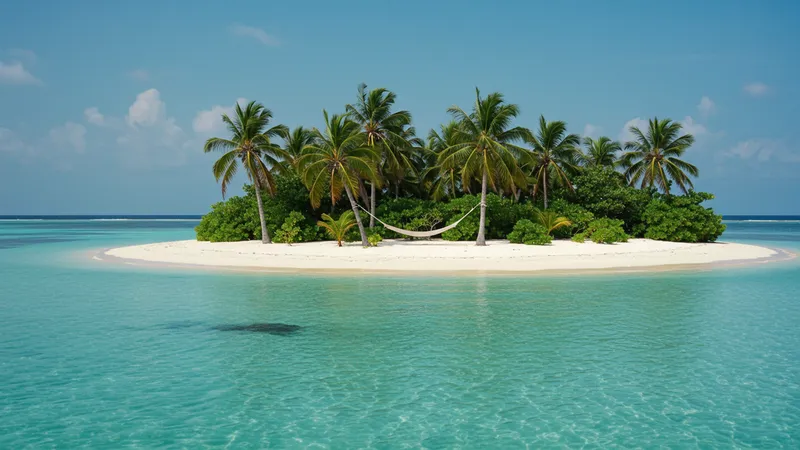
Isolation from urban life's demands allows for personal growth, reflecting on priorities and offering a sense of serenity and tranquility. It’s about experiencing true freedom—no schedules, no crowds—just you and nature.
This fulfillment is part of why many commit despite the challenges. The understanding that you own a personal sanctuary, a world apart, a place to rejuvenate both mind and spirit, is an allure few other properties can match.
People often find it transformative, whether renewing relationships, pursuing creative projects, or simply disconnecting to reconnect with oneself. The serene beauty and solitude offer unmatched restorative qualities.
Selecting your island requires careful consideration, from geographic location to climate and local amenities. Tools like virtual tours and consulting overlooking firms can assist in narrowing down choices.
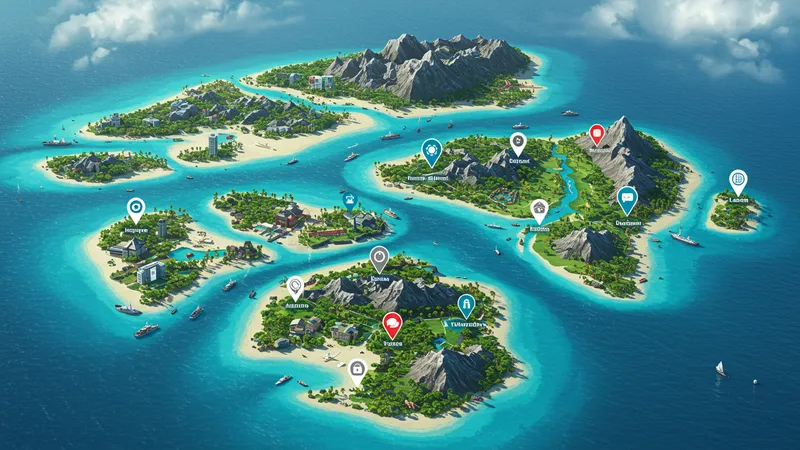
Once location preferences are determined, assessing available facilities and proximity to essentials, like transport connections and healthcare, becomes the next step, vital for a sustainable lifestyle.
Practicality isn’t the only concern; the island must resonate with personal aspirations. Whether it’s the perfect sunset view, lush greenery, or vibrant marine life, each island has its unique appeal.
Eventually, this decision blends rational planning with emotional resonance. It's about choosing a place that feels like an extension of yourself, a harmonious backdrop to your perfect island dream.
Start by defining what you want in an island—privacy, potential income, or sustainability. Make a list of must-haves and nice-to-haves to guide your search through listings and virtual tours.
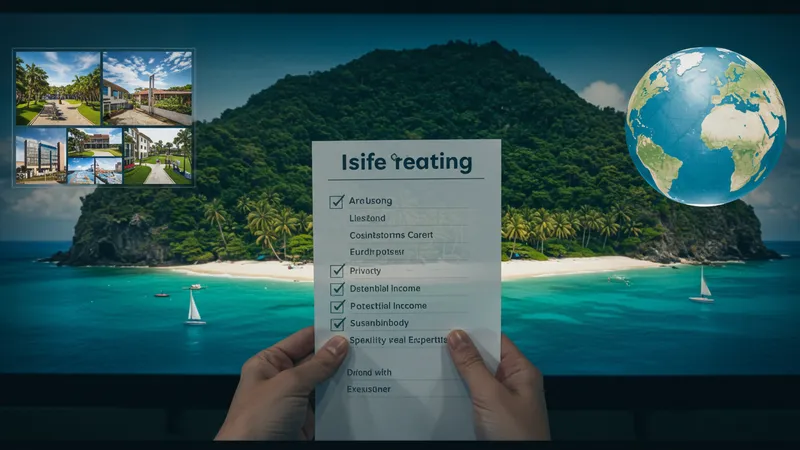
Next, consult with international real estate experts who specialize in island purchases. Their guidance on the legalities and market conditions will streamline your buying process.
Engage an experienced attorney to navigate complex contracts and navigate local acquisition laws to avoid pitfalls. Familiarize yourself with specific regulations regarding foreign ownership if applicable.
Once due diligence is complete, arrange a visit to your top choices. Experience life on the island firsthand before committing to ensure it aligns with your vision for your slice of paradise.
After navigating the complexities and considerations, the final decision comes down to where your heart leads you. It’s more than an investment; it’s a step towards a new lifestyle or passion project.
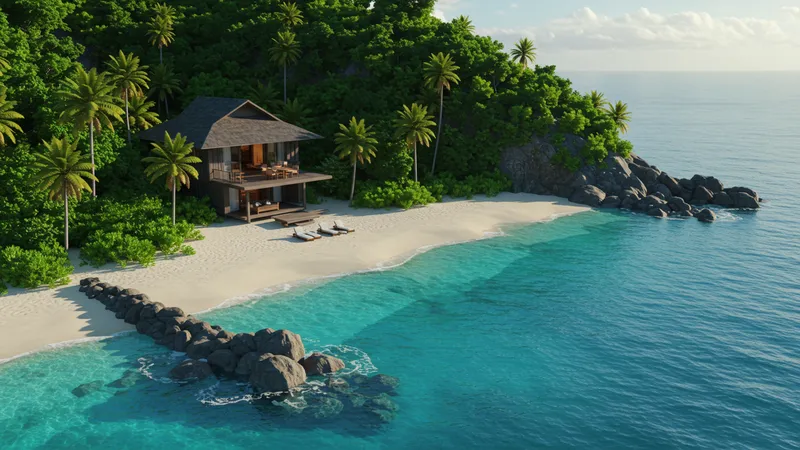
Whether it's hosting lavish gatherings, conserving natural beauty, or finding tranquility, owning an island provides endless possibilities. It's about making your dream a reality, transforming aspiration into a concrete, livable vision.
Each island has a unique story, waiting for the right person to uncover and continue it. With this ownership comes the promise of shaping an environment that reflects your ideals and values.
Your journey to owning a slice of paradise is as unique as the island you choose. The legacy you create will last generations, and the lifestyle, unmatchable. Owning an island isn’t just a purchase—it’s an adventure like no other.
In the end, owning a private island is more than a real estate choice; it's a leap into an unparalleled experience of freedom and self-discovery. And the story of each island is one only you can write. So, what's stopping you? Ready to own a slice of paradise? Share this article, bookmark it for future inspiration, and get started on this extraordinary journey today!